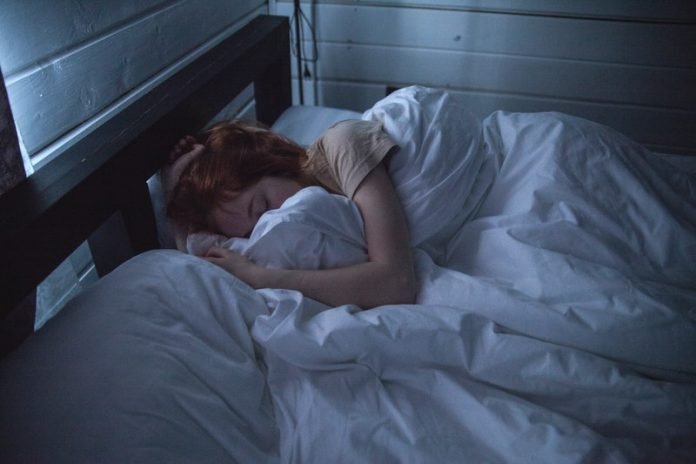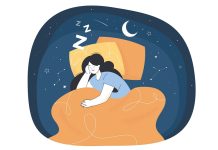
In a new study, researchers found people with severe insomnia may benefit from taking a sedative to help address their sleep problems.
The medicine could help reduce their suicidal thoughts.
The research was conducted by a team from Augusta University, Duke University, and the University of Wisconsin.
More than 30 studies have linked insomnia to suicidal thoughts or actions, however, suicide risk and prevention are largely overlooked in the treatment of insomnia.
In this study, the team examined 103 participants ages 18 to 65 with major depressive disorder, insomnia, and suicidal thoughts. About 30% had a prior suicide attempt.
All participants took an antidepressant for the eight-week duration of the trial and half also took the sedative-hypnotic zolpidem at bedtime.
Participants completed regular self-reports of the severity of their insomnia and completed a daily sleep diary during their treatment.
The team also measured distorted thoughts about sleep, like participants thinking they would never again have a good night’s sleep.
They found those taking the sleep aid showed immediate and longer-term improvement in their reported insomnia severity.
Both groups reported significant improvement in their feelings about hopelessness, quality of life, nightmares and dysfunctional beliefs about sleep, as well as related insomnia and suicidality.
But the group taking the sleep aid had a greater reduction in suicidal thinking. Sleep aid was most effective in reducing suicidal thoughts in patients with the most severe insomnia.
The team says if a patient says their sleep problem is really bad and they have had thoughts of killing themselves, maybe they should have a targeted treatment for their insomnia.
The findings suggest that the co-prescription of a hypnotic during initiation of an antidepressant may be beneficial in suicidal outpatients, especially in patients with severe insomnia.
The lead author of the study is Dr. Vaughn McCall, chair of the Department of Psychiatry and Health Behavior.
The study is published in the American Journal of Psychiatry.
Copyright © 2019 Knowridge Science Report. All rights reserved.



